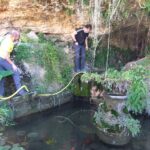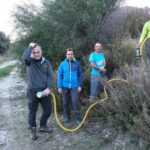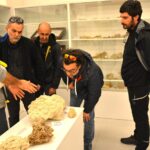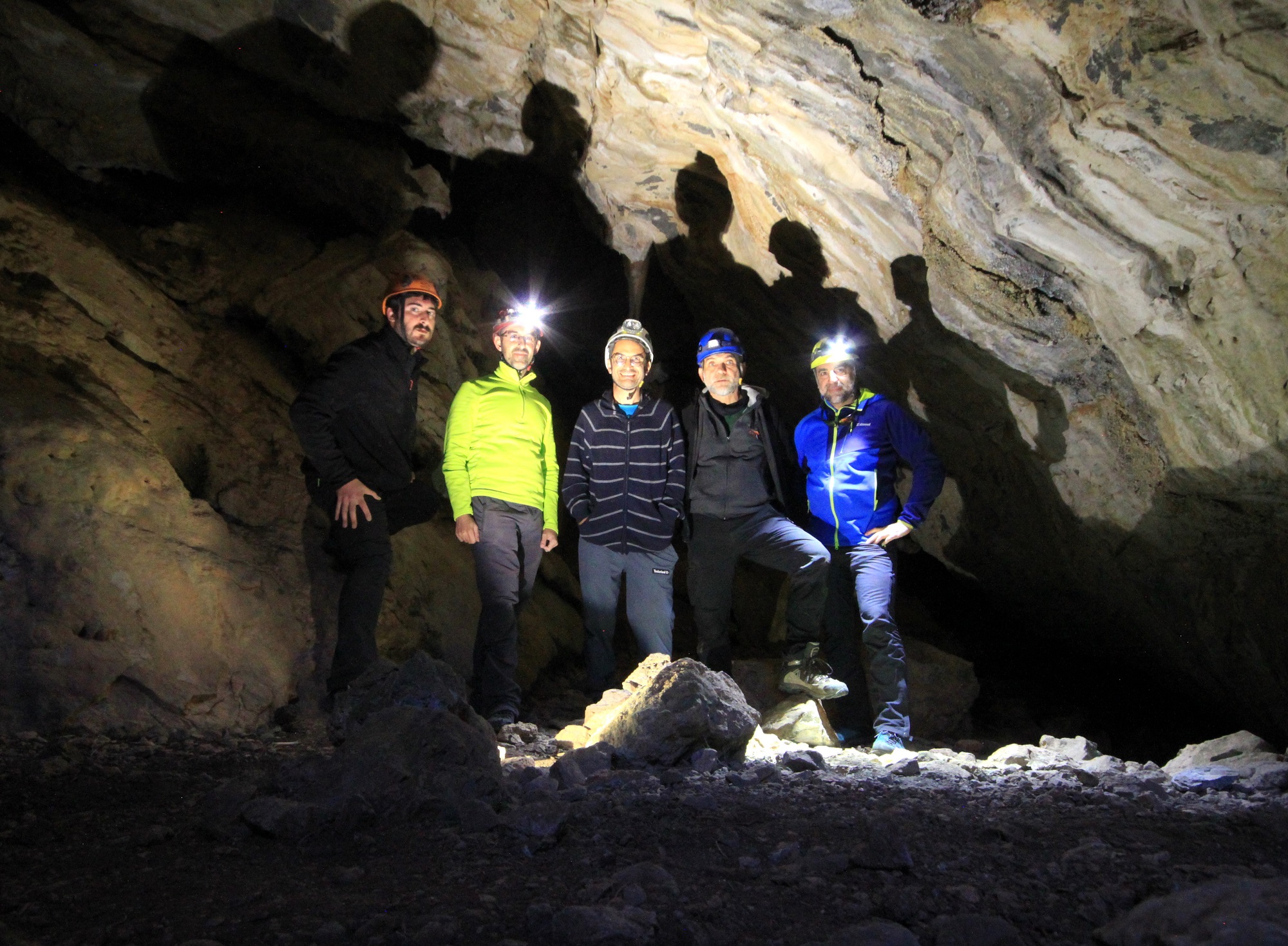
Within the scope of the project carried out in cooperation with researchers from Italy, France, Northern Cyprus and Southern Cyprus, Tetide Caving Association and Sannio University researchers, who came to the TRNC, carried out field work in the Pentadactylos (Beşparmak) Mountains together with Near East University researchers.
The international project, of which Near East University is a partner, will reveal whether freshwater resources in karst areas consisting of lime and gypsum in 23 countries bordering the Mediterranean are exposed to pollution consisting of small plastic particles (microplastics). The “Monitoring of Microplastics in Mediterranean Karst Fresh Water” project, which was implemented in cooperation with researchers from Italy, France, Northern Cyprus and Southern Cyprus aims to track down small plastic particles that can be harmful to aquatic life and also enter the food chain and pose a threat to human health.
Rapidly increasing plastic pollution is a serious global environmental problem that negatively affects the environmental, social, economic and health dimensions of sustainable development. Experts warn that if necessary interventions are not made, the amount of plastic waste entering aquatic ecosystems, which was approximately 9-14 million tons in 2016, may triple by 2040 and reach approximately 23-37 million tons per year.
The project aims to determine the current situation in the Mediterranean Region in order to effectively combat microplastics. Among the stakeholders of the project, of which Near East University is a partner with its Environmental Research Center, are Tetide Caving Association (Italy), French Federation of Speleology Commission Scientifique, Cave Enthusiasts Association (TRNC), Sannio University Science and Technology from Italy, Department of Biodiversity and Ecosystem Services Laboratory and University of Nicosia in Southern Cyprus.
Near East University and Sannio University researchers are in the Beşparmak Mountains!
Researchers from Tetide Caving Association and Sannio University, who came to the TRNC within the scope of the study, Dr. Francesco Maurano, Dr. Andrea Vitale, Marco Ragusa and Francesco De Salve carried out field work in the Beşparmak Mountains together with Near East University researchers. The results of the field study conducted by Head of Near East University Environmental Research Center and Deputy Dean of the Faculty of Agriculture, Prof. Dr. Salih Gücel with his Italian colleagues, will be combined the results obtained from the field research to be carried out in Italy, France and Southern Cyprus.
The study, which aims to determine the type and ratio of small plastic particles seen in fresh water resources, aims to combat microplastics that threaten human health and the environment. The project also aims to develop effective strategies to protect karst regions and cave ecosystems containing soluble stones and to reduce microplastic pollution.
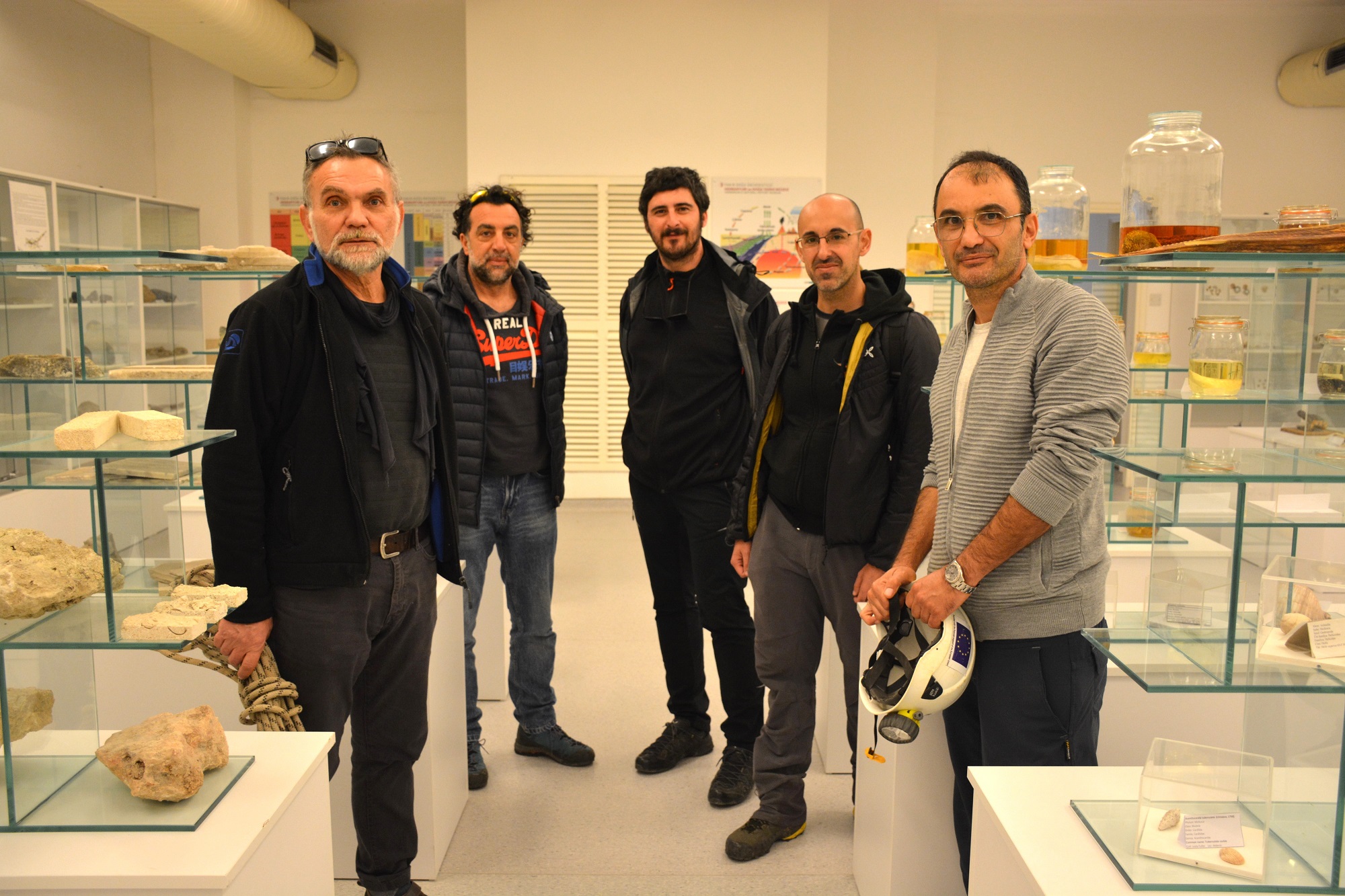
Prof. Dr. Salih Gücel: “The field studies we carried out in TRNChave also been carried out in Italy, France and Southern Cyprus, and the results will reveal important findings about microplastic pollution in the Mediterranean Region.”
Emphasizing that microplastics threaten human health as well as the environment, Head of Near East University Environmental Research Center and Deputy Dean of the Faculty of Agriculture, Prof. Dr. Salih Gücel said, “The field studies we carried out in TRNC have also been carried out in Italy, France and Southern Cyprus, and the results will reveal important findings about microplastic pollution in the Mediterranean Region.”
Prof. Dr. Gücel said that the results of the field studies they carried out in TRNC, together with the field studies carried out in Italy, France and Southern Cyprus, and the research that will expand to other Mediterranean Countries in the future, will reveal important findings about microplastic pollution in the Mediterranean Region. Prof. Dr. Gücel said, “As the scientists carrying out the project, we aim to lead conservation efforts by increasing environmental awareness about the water resources in our region.”
